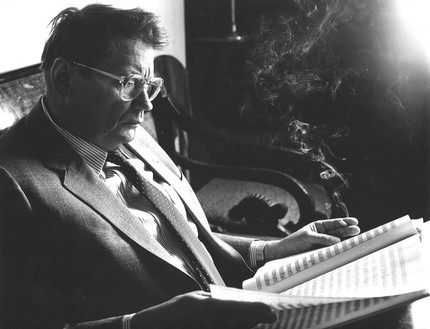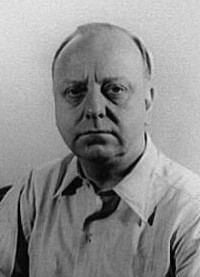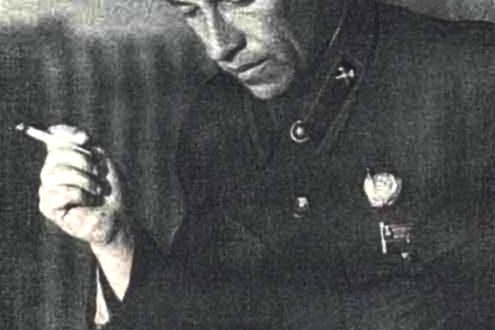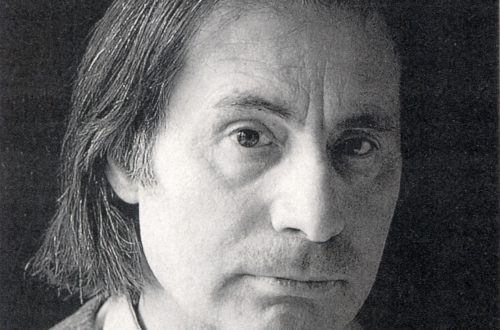
Boris Alexandrovich Tchaikovsky |
Boris Tchaikovsky

This composer is deeply Russian. His spiritual world is a world of pure and sublime passions. There is a lot of something unsaid in this music, some hidden tenderness, great spiritual chastity. G. Sviridov
B. Tchaikovsky is a bright and original master, in whose work originality, originality and deep soiledness of musical thinking are organically intertwined. For several decades, the composer, despite the temptations of fashion and other attendant circumstances, uncompromisingly goes his own way in art. It is significant how boldly he introduces into his works the simplest, sometimes even familiar chants and rhythmic formulas. For, having passed through the filter of his amazing sound perception, inexhaustible ingenuity, ability to match the seemingly incompatible, his fresh, transparent instrumentation, graphically clear, but rich in color texture, the most ordinary intonation molecule appears to the listener as if reborn, reveals its essence, its core …
B. Tchaikovsky was born into a family where music was very much loved and their sons were encouraged to study it, both of whom chose music as their profession. In childhood, B. Tchaikovsky composed the first piano pieces. Some of them are still included in the repertoire of young pianists. In the famous school of the Gnessins, he studied piano with one of its founders E. Gnesina and A. Golovina, and his first teacher in composition was E. Messner, a man who brought up many famous musicians, who surprisingly accurately knew how to lead a child to solve quite complex problems. compositional tasks, to reveal to him the meaningful meaning of intonational transformations and conjugations.
In the school and at the Moscow Conservatory, B. Tchaikovsky studied in the classes of famous Soviet masters – V. Shebalin, D. Shostakovich, N. Myaskovsky. Even then, the important features of the creative personality of the young musician were quite clearly declared, which Myaskovsky formulated as follows: “A peculiar Russian warehouse, exceptional seriousness, good composing technique …” At the same time, B. Tchaikovsky studied in the class of the remarkable Soviet pianist L. Oborin. The composer still acts as an interpreter of his compositions today. In his performance, the Piano Concerto, Trio, Violin and Cello Sonatas, Piano Quintet are recorded on gramophone records.
In the early period of his work, the composer created a number of major works: the First Symphony (1947), Fantasia on Russian Folk Themes (1950), Slavic Rhapsody (1951). Sinfonietta for string orchestra (1953). In each of them, the author discovers an original, deeply individual approach to seemingly well-known intonation-melodic and content-semantic ideas, to traditional forms, nowhere straying to the stereotyped, stilted solutions common in those years. No wonder his compositions included such conductors as S. Samosud and A. Gauk in their repertoire. In the decade 1954-64, limiting himself mainly to the field of chamber instrumental genres (Piano Trio – 1953; First Quartet – 1954; String Trio – 1955; Sonata for Cello and Piano, Concerto for Clarinet and Chamber Orchestra – 1957; Sonata for Violin and piano – 1959; Second Quartet – 1961; Piano Quintet – 1962), the composer not only developed an unmistakable musical vocabulary, but also identified the most important features of his own figurative world, where beauty, embodied in melodic themes, in Russian free, unhurried, “laconic”, appears as a symbol of moral purity and perseverance of a person.
The Cello Concerto (1964) opens a new period in the work of B. Tchaikovsky, marked by major symphonic concepts that pose the most important questions of being. Restless, living thought collides in them either with the indifferently non-stop running of time, or with inertia, the routine of everyday ritualism, or with ominous flashes of unrestrained, ruthless aggressiveness. Sometimes these collisions end tragically, but even then the listener’s memory retains moments of higher insights, upsurges of the human spirit. Such are the Second (1967) and Third, “Sevastopol” (1980), symphonies; Theme and Eight Variations (1973, on the occasion of the 200th anniversary of the Dresden Staatskapelle); symphonic poems “Wind of Siberia” and “Teenager” (after reading the novel by F. Dostoevsky – 1984); Music for Orchestra (1987); Violin (1969) and Piano (1971) concertos; Fourth (1972), Fifth (1974) and Sixth (1976) quartets.
Sometimes lyrical expression seems to be hidden behind half-joking, half-ironic masks of stylization or dryish etude. But both in the Partita for cello and chamber ensemble (1966) and in the Chamber Symphony, in sublimely sad finales, among the fragments-echoes of previous chorales and march movements, unisons and toccatas, something fragile and secretly personal, dear, is revealed. In the Sonata for two pianos (1973) and in the Six Etudes for strings and organ (1977), the alternation of different types of texture also hides the second plan – sketches, “etudes” about feelings and reflections, disparate life impressions, gradually forming into a harmonious picture of meaningful, “humanized world”. The composer rarely resorts to means drawn from the arsenal of other arts. His graduation work at the conservatory – the opera “Star” after E. Kazakevich (1949) – remained unfinished. But comparatively few of B. Tchaikovsky’s vocal works are devoted to essential problems: the artist and his destiny (cycle “Pushkin’s Lyrics” – 1972), reflections on life and death (cantata for soprano, harpsichord and strings “Signs of the Zodiac” on F. Tyutchev, A. Blok, M. Tsvetaeva and N. Zabolotsky), about man and nature (the cycle “Last Spring” at the station of N. Zabolotsky). In 1988, at the festival of Soviet music in Boston (USA), the Four Poems of I. Brodsky, written back in 1965, were performed for the first time. Until recently, their music in our country was known only in the author’s transcription of 1984 (Four preludes for chamber orchestra). Only at the Moscow Autumn-88 festival did the cycle sound for the first time in the USSR in its original version.
B. Tchaikovsky is the author of poetic and cheerful music for radio fairy tales for children based on G. X. Andersen and D. Samoilov: “The Tin Soldier”, “Galoshes of Happiness”, “Swineherd”, “Puss in Boots”, “Tourist Elephant” and many others, also known thanks to gramophone records. For all the outward simplicity and unpretentiousness, there are a lot of witty details, subtle reminiscences, but even the slightest hints of schlager standardization, stampedness, with which such products sometimes sin, are completely absent. Just as fresh, precise and convincing are his musical solutions in such films as Seryozha, Balzaminov’s Marriage, Aibolit-66, Patch and Cloud, French Lessons, Teenager.
Figuratively speaking, in the works of B. Tchaikovsky there are few notes, but a lot of music, a lot of air, space. His intonations are not banal, but their cleanliness and novelty are far from both “chemically pure” laboratory experiments, deliberately freed from even a hint of everyday intonation, and from attempts to “flirt” with this environment. You can hear the tireless mental work in them. This music requires the same work of the soul from the listener, offering him in return high pleasure from the intuitive comprehension of the harmony of the world, which only true art can give.
V. Licht





